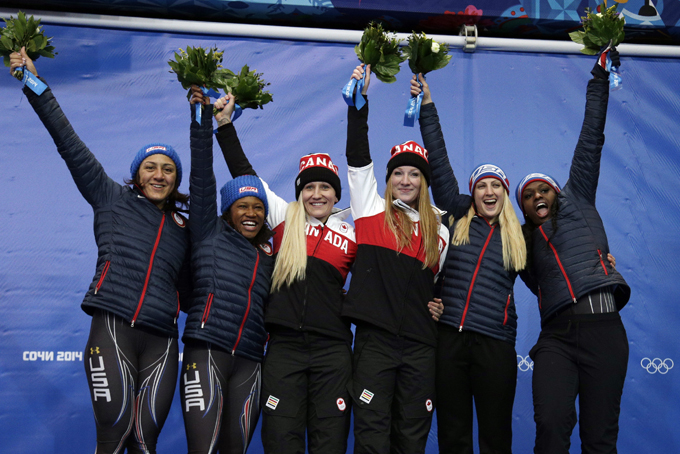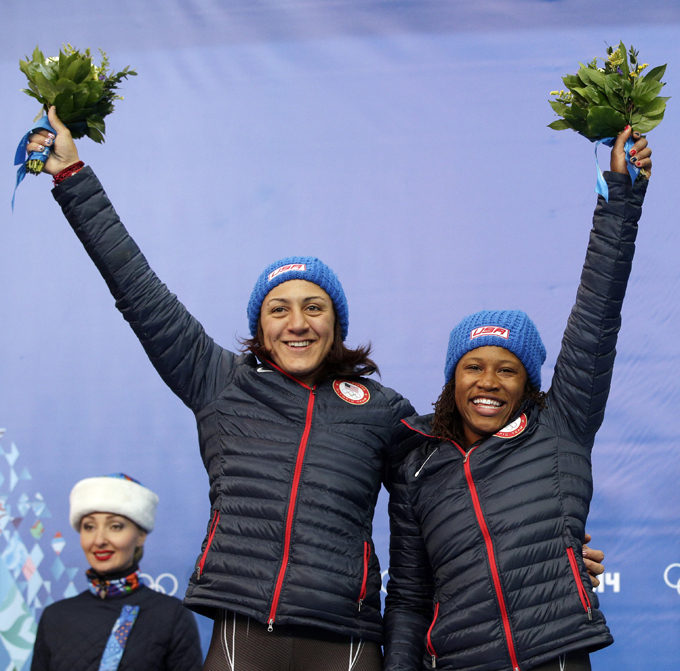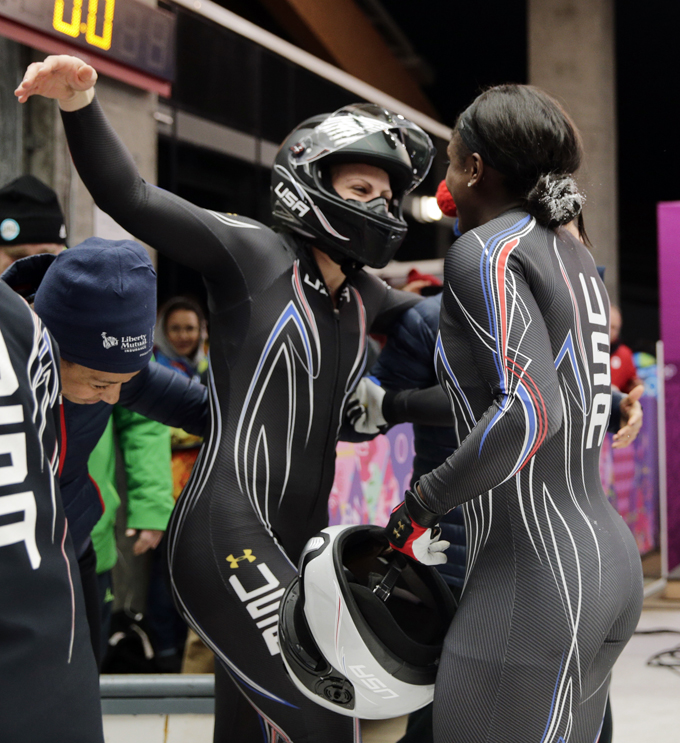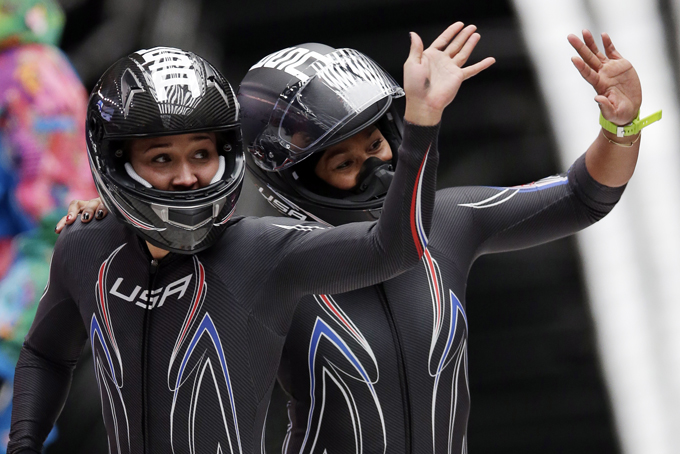
Williams becomes the first U.S. woman and fifth athlete overall to win medals in different sports at both the Summer and Winter Games
KRASNAYA POLYANA, Russia (AP) — For Canada’s Kaillie Humphries, having a minimal margin for error is apparently no problem.
It’s why she’s the World Cup champion.
It’s also why she’s the Olympic champion. Again.
Humphries and Heather Moyse remain queens of Olympic women’s bobsledding after winning their second straight gold medal, rallying past the U.S. duo of Elana Meyers and Lauryn Williams on Wednesday night at the Sochi Games.
“How do you describe achieving a dream?” Humphries asked after becoming the first women’s bobsled driver to win back-to-back Olympic gold medals. “This is a four-year goal of ours. This has been something that we’ve done together.”
The final margin: One-tenth of a second.
“Anytime you come that close and you can taste it, if you don’t get the result, it hurts a little bit,” Meyers said. “But Kaillie just beat me.”

Meyers became the first U.S. women’s bobsledder to win multiple Olympic medals, this one added to the bronze she captured as a brakeman in Vancouver. Williams became the first U.S. woman and fifth athlete overall to win medals in different sports at both the Summer and Winter Games, her silver here added to a sprint relay gold from London in 2012 and a silver from the 100 meters in Athens in 2004.
“I didn’t come here to make history,” Williams said. “I came here to help Team USA and I feel like I did. It wasn’t about history for me. It wasn’t about the medal for me. It’s all about the journey.”
Jamie Greubel paired with brakeman Aja Evans to grab the bronze in USA-2, giving the U.S. two Olympic women’s bobsled medal winners for the first time.
“We have so much depth in our program and so much talent on our team,” Greubel said. “And to be able to show the world that we are a force to be reckoned with is really awesome.”

All true.
But this night belonged to Humphries — who beat Meyers by a single point for the season-long World Cup title — and Moyse.
They were second behind Meyers and Williams in USA-1 after the first two runs on Tuesday and left the track not knowing or caring how far behind they were. The way they saw it, showing up on Wednesday and going as fast as they could was all that mattered.
“Anything else would have been a negative way to think,” Moyse said.
It gave them the most positive of all results.
In the third heat, they cut by more than half the 0.23-second deficit they entered the night facing. Humphries went next-to-last in the final run, throwing down a sizzling 57.92 to put the pressure on USA-1. Moments later, when Meyers had another early skid in her final trip down the track, the gold was essentially decided.
Still, USA-1 hardly seemed dissatisfied with Sochi silver.
When it was over, Williams wrapped herself in an American flag, jumping up and down while she and Meyers smiled broadly.

Not long afterward, all three U.S. teams — including Lolo Jones and Jazmine Fenlator, who were 11th in USA-3 — were arm in arm, celebrating that two medals are America-bound.
And to Jones, seeing Williams — a fellow track athlete turned bobsledder — etch her spot in Olympic history meant just about everything.
“She’s like a Jesse Owens. I hope she just inspired a whole country,” Jones said. “When I get home I hope she’s a household name. Her transformation was the most brilliant thing I’ve ever watched.”
For Jones, it was not the Olympics she dreamed about. Her third trip to the games — the first two as a hurdler, in Beijing and London — also ended without a medal.
Jones clipped a hurdle to lose what would have been gold in Beijing and fought through injury to finish fourth in London, finding both results difficult to accept. At these games, going home without a medal was hardly her fault, as the push times for USA-3 — which was not expected to be in medal contention — were hardly the problem.
As a few fans chanted their names, Fenlator and Jones both gave big waves, accompanied by wide smiles when it was over.
That alone seemed like victory for Jones, whose first two Olympic experiences ended in heartbreak.